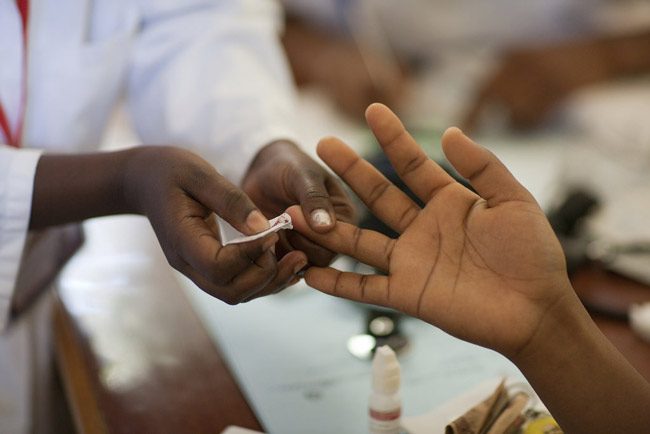
While Florida has made strides in reducing the number of uninsured children, a national health-care expert warned Thursday that those gains are likely stalling, and she put part of the blame on increased scrutiny of immigration status.
Joan Alker, executive director of the Washington-based Center for Children and Families, said data released late last month by the National Center on Health Statistics shows that the number of uninsured children in Florida in 2017 rose slightly to 7.6 percent.
Alker said that while the small rise — from 7.4 percent the previous year — may be statistically insignificant, it could be “an early warning sign” that Florida’s seven-year trend of lowering uninsured rates for children is at risk.
She attributed the increase in part to attrition of what she called “mixed” families, or families where a parent is an immigrant and the child is either a citizen or legally residing in the state.
“Because of all the intimidation that is happening right now with immigrant families, we’ve heard lots of anecdotal evidence that they are very reluctant now to sign their kids up for coverage,” said Alker who has spent years observing Florida’s government-subsidized health insurance programs.
She suggested that other factors that could have played a factor in the slight hike include congressional efforts to repeal the Affordable Care Act and a push to restructure the Medicaid program and reduce funding.
State Agency for Health Care Administration spokeswoman Mallory McManus said she wasn’t aware of the new data and said that “ensuring that children have access to health care has always been a priority of our agency.”
Combined, the subsidized Children’s Health Insurance Program and Medicaid provide coverage to an estimated 44 percent of the children in the state.
The National Health Interview Survey data is collected through personal household interviews. Alker called the data an “early sign,” but said that the release in September of information from what is known as the American Community Survey will provide additional insight about health insurance. The American Community Survey is the largest household survey conducted by the Census Bureau.
While the 2017 percentage increase was small, Alker said it shows that Florida lost ground while states such as Texas and California continued to make progress. Those states lowered their uninsured rates by 1 percent and 1.4 percent, respectively.
Alker made the remarks during a webinar where she discussed a new report called, “The New Federal Children’s Health Insurance Law and What it Means for Florida’s Children.”
It is one of a series of reports that Alker has conducted about health insurance for Florida children and was funded by the Florida Blue Foundation, the Health Foundation of South Florida, the Space Coast Health Foundation and the Winter Park Health Foundation, among others, operating under the Florida Philanthropic Network.
The report examines the impact of two recently passed extensions of the Children’s Health Insurance Program and what they mean for the state. CHIP funding expired last year, and many states, such as Florida, were forced to operate the program on carry-over funds from previous years. Congress agreed to extend CHIP funding in January and again in February.
CHIP funds subsidized insurance coverage for more than 345,000 children in Florida.
Under the extensions, Alker said Florida cannot make any future changes to the CHIP program that would make it more cost- restrictive, including increasing co-payments.
–Christine Sexton, News Service of Florida





























Leave a Reply